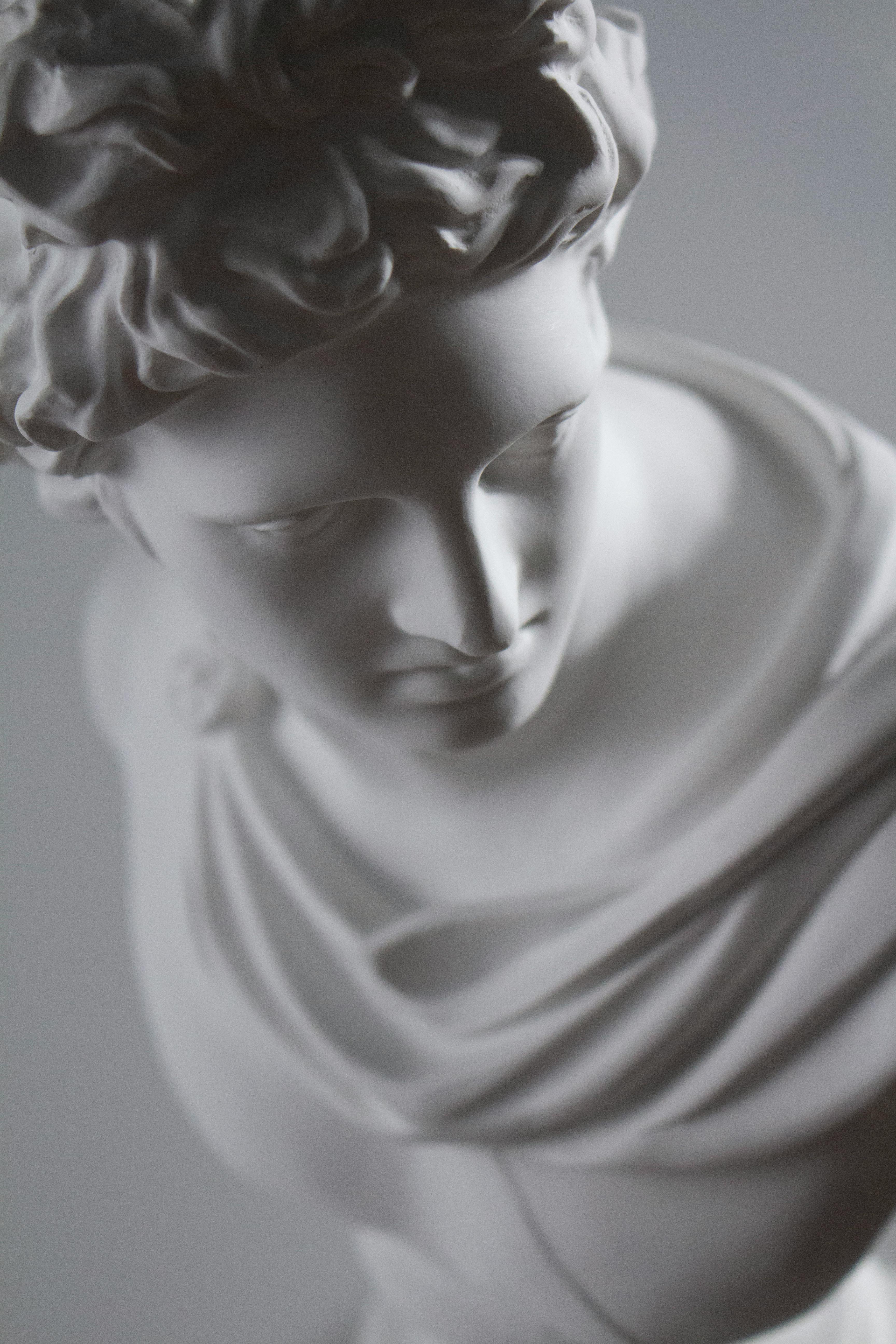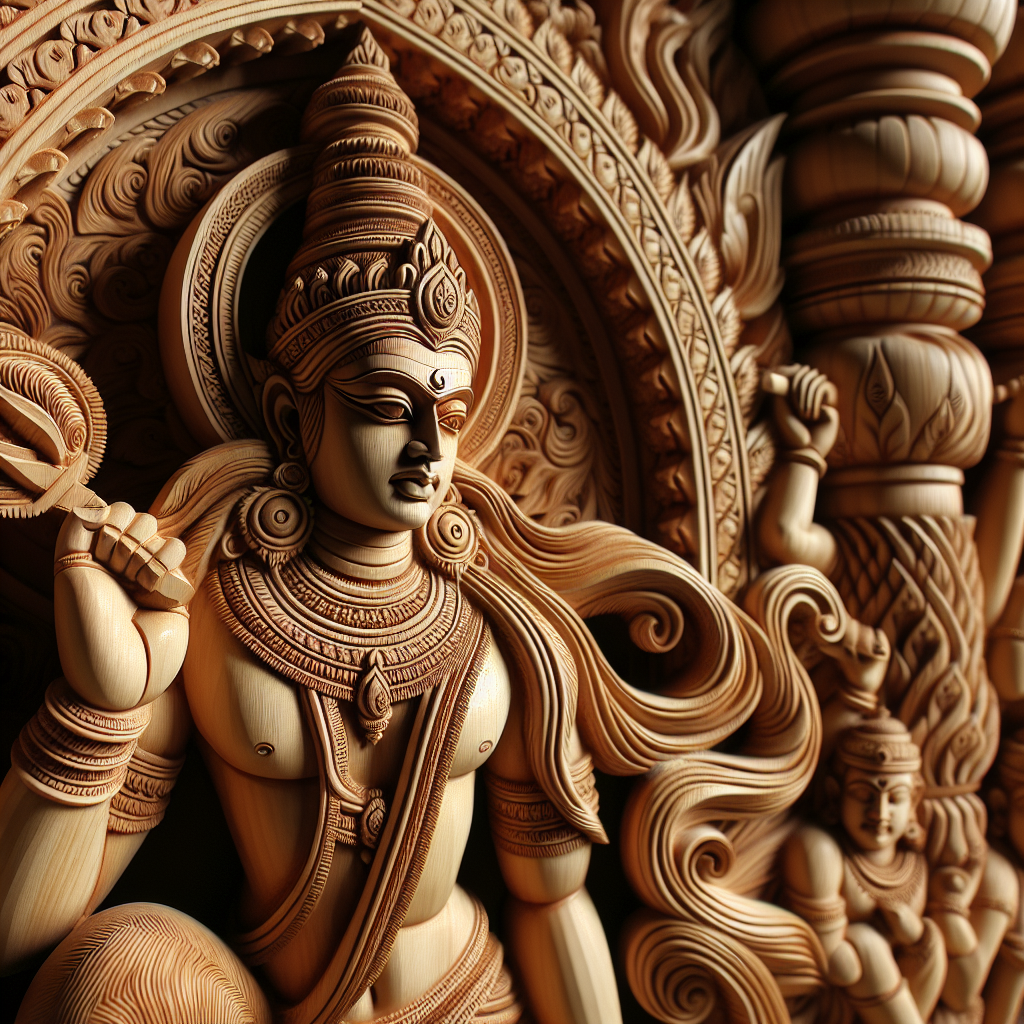India, a land steeped in ancient traditions and vibrant culture, has a literary heritage that spans centuries. This article explores the power of mythology in Indian literature, uncovering the treasure trove of linguistic and literary gems found on IndianCulture.com. From the ancient language of Sanskrit to the timeless tales of classical epics, as well as the works of contemporary authors, Indian literature is a rich tapestry woven with mythological threads. Join us as we embark on a journey to delve into the profound impact of mythology in shaping the essence of Indian storytelling.

The Role of Mythology in Indian Literature
In Indian literature, mythology holds a significant place, acting as a foundation for many literary works. Mythological characters, themes, and symbols are interwoven seamlessly into the fabric of Indian literature, enriching the narratives and captivating readers. With its roots stretching back to ancient epics, Indian mythology continues to exert a profound influence on contemporary literature, creating a bridge between the past and the present. Furthermore, mythology plays a pivotal role in Indian folk literature, poetry, theater, and performing arts, making it a vibrant and integral part of the Indian literary landscape. Let us delve deeper into the various aspects of mythology in Indian literature and explore its diverse manifestations.
The Significance of Mythological Characters
Mythological characters serve as archetypes, embodying cultural ideals and values within Indian literature. These characters, with their extraordinary abilities and moral dilemmas, capture the imagination of readers and bring timeless wisdom to the forefront. Whether it is the virtuous Lord Rama from the Ramayana or the complex deity Lord Krishna from the Mahabharata, these characters offer valuable insights into concepts such as duty, righteousness, and the eternal battle between good and evil. By personifying such ideals, mythology provides a moral compass for individuals, guiding them in navigating the complexities of life.
The Influence of Mythology on Themes and Plot
Mythology permeates the themes and plots of Indian literary works, providing a rich tapestry of ideas and motifs. Mythological sagas often explore universal themes such as love, heroism, sacrifice, and redemption, resonating deeply with readers across time and cultures. The grand narratives of the Ramayana and the Mahabharata, for example, feature themes of loyalty, honor, and the consequences of one’s actions. These themes not only captivate readers but also offer profound insights into the human condition, encouraging introspection and personal growth.
The Use of Mythological Symbols and Motifs
Mythological symbols and motifs are pervasive in Indian literature, infusing the narratives with layers of meaning and cultural symbolism. Gods and goddesses are often used as literary symbols, representing various aspects of the human psyche. For instance, the goddess Saraswati symbolizes wisdom and knowledge, while the god Shiva represents destruction and transformation. By incorporating these symbols, authors tap into a collective consciousness, allowing readers to connect with the deeper symbolic implications of the text. Moreover, nature and rituals are frequently employed as mythical elements, adding depth and beauty to Indian poetry and prose.
Ancient Indian Epics: The Foundation of Mythological Literature
The ancient Indian epics, namely the Ramayana, the Mahabharata, and the Puranas, form the bedrock of mythological literature in India. These epic tales, passed down through generations, capture the essence of Indian mythology and provide a fertile ground for exploration and reinterpretation in contemporary literature.
The Ramayana: A Tale of Virtue and Duty
The Ramayana, attributed to the sage Valmiki, narrates the story of Lord Rama’s quest to rescue his wife Sita from the clutches of the demon king Ravana. This epic poem emphasizes the ideals of virtue, duty, and honor, and has been a source of inspiration for countless literary works. The character of Rama, known for his unwavering loyalty and adherence to dharma (righteousness), has become an iconic figure in Indian literature. The Ramayana’s universal themes of love, devotion, and the triumph of good over evil continue to resonate in contemporary retellings and adaptations.
The Mahabharata: The Battle of Good and Evil
The Mahabharata, authored by the sage Vyasa, chronicles the legendary Kurukshetra war and the intricate web of relationships, ethical dilemmas, and philosophical discourses surrounding it. This epic saga explores the complexities of human nature, interwoven with divine intervention and moral dilemmas. The Mahabharata’s enduring appeal lies in its portrayal of flawed yet relatable characters, such as the righteous Arjuna and his moral dilemma on the battlefield. Its profound exploration of human nature and the universal struggle between good and evil has inspired countless literary works, both within India and beyond.
The Puranas: Cosmic Tales of Creation and Destruction
The Puranas, a collection of ancient texts, delve into the cosmology of the universe and provide mythological explanations for various natural phenomena. These texts abound with stories of gods, goddesses, heroes, and demons, depicting the eternal cycle of creation, preservation, and destruction. The Puranas serve as a rich source of inspiration for Indian literature, offering a treasure trove of mythical tales that explore the intricacies of the cosmos and the interplay of divine forces.

The Impact of Indian Mythology in Contemporary Literature
Indian mythology continues to wield a significant influence on contemporary literature, with many authors drawing inspiration from these ancient tales. The timeless themes and characters of Indian mythology lend themselves well to various genres, resulting in a diverse array of literary works that captivate readers.
Novels and Short Stories Inspired by Mythology
Authors often use mythology as a foundation to craft compelling narratives in the form of novels and short stories. These works, while drawing inspiration from ancient myths, infuse them with a contemporary sensibility, making them accessible to a wide range of readers. Authors like Amish Tripathi, Anand Neelakantan, and Chitra Banerjee Divakaruni have gained acclaim for their mythological reimaginings, breathing new life into age-old tales and making them relatable to modern audiences.
Mythological Retellings and Adaptations
The retelling and adaptation of mythological stories have become a popular trend in contemporary literature. Authors take creative liberties, reimagining characters, and exploring alternative perspectives, presenting readers with fresh interpretations of familiar tales. Through these adaptations, mythology becomes a vehicle for introspection, challenging traditional narratives and offering thought-provoking insights into timeless themes.
Mythological Elements in Magical Realism
In the genre of magical realism, mythological elements are seamlessly woven into the fabric of the narrative, blurring the boundaries between reality and fantasy. Authors like Salman Rushdie and Kiran Desai employ magical realism to explore the multifaceted nature of Indian culture, incorporating mythical creatures, gods, and supernatural occurrences into their stories. By fusing myth and reality, these authors create a rich tapestry that reflects the intricacies of Indian society and beliefs.
Religion and Mythology: The Interplay in Indian Literature
Religion and mythology are inextricably linked in Indian literature. Mythology serves as a vehicle through which religious concepts are conveyed, while religion provides the cultural and philosophical framework within which mythology thrives. The interplay between religion and mythology in Indian literature is evident in the diverse religious traditions that have shaped the literary landscape of the country.
Mythology and Hinduism
Hinduism, the dominant religion in India, provides a rich tapestry of myths and legends that permeate Indian literature. Mythological characters, deities, and stories associated with Hinduism find their way into various literary genres, whether it be poetry, epics, or philosophical treatises. The sacred texts of Hinduism, such as the Vedas and the Upanishads, serve as a wellspring of mythical narratives that inspire and inform the literary endeavors of countless authors.
Mythology and Buddhism
Buddhism, with its emphasis on the pursuit of enlightenment and the practice of compassion, also finds its place within Indian literature through its own set of myths and legends. Stories of the Buddha’s life, teachings, and interactions with various beings find expression in literary works, offering readers a glimpse into the transformative power of Buddhist philosophy. The Jataka tales, a collection of stories about the Buddha’s past lives, highlight the moral and ethical principles espoused by Buddhism and have been a source of inspiration for authors seeking to explore these themes.
Mythology and Jainism
Jainism, an ancient Indian religion that emphasizes non-violence and spiritual liberation, too has contributed to the mythological fabric of Indian literature. Jain myths, often centered around the lives and deeds of revered Jain Tirthankaras, offer insights into the Jain worldview and principles. These myths, replete with tales of heroism, selflessness, and spiritual awakening, serve as a foundation for moral and ethical reflections within Jain literature.

The Role of Mythology in Indian Folk Literature
Mythology holds a prominent place in Indian folk literature, enriching the cultural and moral fabric of the country. Folktales, legends, and folk songs are imbued with mythological elements, offering valuable insights and life lessons to the readers.
The Tales of Panchatantra: Lessons in Morality
The Panchatantra, a collection of ancient Indian fables, exemplifies the integration of mythology into Indian folk literature. These tales, often narrated through animal characters, employ mythical elements to impart moral and ethical lessons. Stories of friendship, cunningness, and wisdom are interwoven with mythical references, providing readers with both entertainment and valuable life lessons.
Folktales and Legends: Cultural and Moral Context
Indian folk literature is replete with a rich repository of folktales and legends that reflect the cultural diversity and beliefs of the region. These narratives draw upon mythology to emphasize cultural values, social norms, and the enduring struggle between good and evil. Whether it is the story of Rani Padmini in Rajasthani folklore or the legend of Nongkrem Dance in Khasi tradition, these tales incorporate mythical elements to convey cultural and moral contexts to the readers.
Mythological Folk Songs and Poetry
Folk songs and poetry in India are replete with references to mythology, infusing the oral traditions with a sense of awe and wonder. These songs and poems reflect the rich tapestry of Indian mythology, celebrating the various gods and goddesses and recounting their mythical deeds. From the devotional songs of the Bhakti and Sufi traditions to the regional folk songs celebrating the harvest or weddings, these compositions serve as a living testament to the enduring power of mythology in Indian folk literature.
The Impact of Mythological Symbolism in Indian Poetry
Indian poetry draws upon a rich reserve of mythological symbolism, utilizing gods, goddesses, and mythical elements to evoke profound emotions and explore complex themes.
The Use of Gods and Goddesses as Literary Symbols
In Indian poetry, gods and goddesses are often employed as powerful symbols, representing various aspects of the human experience. The playful and mischievous nature of Lord Krishna symbolizes the complexities of love and desire, while the resolute goddess Durga signifies strength and courage. By incorporating these deities as symbols, poets tap into the collective consciousness of their readers, evoking a deep resonance that transcends mere words.
The Mythical Elements in Nature Poetry
Nature poetry in India often employs mythical elements to elevate the description of natural phenomena to a transcendent realm. Poets draw upon the imagery of rivers, mountains, and celestial bodies, imbuing them with mythical qualities and invoking the presence of gods and goddesses. By intertwining mythology and nature, poets evoke a sense of wonder, awe, and spirituality, allowing readers to connect with the divine essence present in the natural world.
The Symbolic Interpretation of Rituals in Poetry
Indian poets often delve into the symbolic interpretation of rituals, demystifying their deeper spiritual significance. Rituals are seen as a conduit for connecting with the divine and cultivating a sense of spiritual awareness. Myths and legends associated with these rituals are seamlessly woven into the poetic narrative, offering readers a glimpse into the intricate web of symbolism and spiritual wisdom that underlies everyday practices.
Mythology in Indian Theater and Performing Arts
The influence of mythology is not limited to literature but extends to Indian theater and performing arts as well. Mythological stories find vibrant expression in various forms of traditional and contemporary theater, captivating audiences and keeping the mythological tradition alive.
The Influence of Sanskrit Dramas
Sanskrit dramas, such as the plays of Kalidasa and Bhavabhuti, draw heavily upon mythology, exploring the lives and deeds of mythological characters in a theatrical setting. These dramas, known as ‘Nataka’ and ‘Rupaka,’ bring the mythological tales to life on stage, employing elaborate costumes, music, and dance to captivate the audience. The plays not only entertain but also educate and enrich the viewers, fostering a deep connection with the mythological heritage of India.
Depiction of Mythical Stories in Dance and Music
Indian classical dance forms, such as Bharatanatyam, Kathakali, and Odissi, often incorporate mythological stories into their performances. Dancers bring the characters and narratives of Indian mythology alive through their expressions, movements, and gestures, evoking the emotions and essence of the mythical realm. Similarly, music, whether in the form of classical ragas or devotional compositions, incorporates mythological themes, enabling the audience to experience the divine through sound.
The Merging of Mythology and Contemporary Theater
Contemporary theater in India embraces mythology as a source of inspiration, merging traditional mythological elements with modern storytelling techniques. Theatrical productions today blur the boundaries between myth and reality, combining ancient tales with contemporary social, political, and cultural commentary. With innovative staging, multimedia integration, and experimental approaches, contemporary theater breathes new life into mythology, making it accessible and relevant to diverse audiences.
The Oral Tradition: Storytelling and Mythological Narratives
The oral tradition has played a crucial role in preserving mythology and passing it down through generations. Storytelling, in its various forms, keeps the mythological narratives alive, adapting them to changing times and ensuring their continued relevance.
The Importance of Oral Tradition in Preserving Mythology
Before the advent of writing, mythology was primarily transmitted through oral traditions, ensuring its preservation and dissemination across vast geographies and diverse communities. Storytellers played a pivotal role in this process, committing the vast corpus of mythological narratives to memory and sharing them with audiences through captivating performances. The oral tradition enabled the intergenerational transmission of cultural heritage and fostered a sense of communal identity through shared stories.
The Role of Mythological Storytellers
Mythological storytellers, or ‘Kathakars,’ held a revered place in Indian society, celebrated for their ability to weave intricate tales and bring mythology to life through their performances. These storytellers possessed a deep knowledge of the mythological corpus and had the skill to captivate audiences with their emotive delivery and theatrical renditions. The legacy of mythological storytellers continues to thrive in various regional traditions, ensuring the oral preservation of Indian mythology.
The Adaptation of Mythological Narratives in Modern Media
While the oral tradition remains vital, modern media platforms have also embraced mythology, adapting mythological narratives to reach a wider audience. From television serials and movies to graphic novels and video games, Indian mythology has found new avenues of expression and engagement. These adaptations bring mythological stories to a visual medium, reimagining them with contemporary storytelling techniques and catering to a generation that consumes media in diverse formats.
The Psychological and Philosophical Aspects of Mythology in Indian Literature
Mythology in Indian literature delves into the psychological and philosophical dimensions of human existence, offering profound insights into the complexities of the human condition and the pursuit of spiritual wisdom.
Mythology as a Source of Spiritual Wisdom
Indian literature, steeped in mythology, serves as a wellspring of spiritual wisdom, offering guidance and insights into the nature of human existence and the search for meaning. Ancient texts, such as the Upanishads and the Bhagavad Gita, explore existential questions and provide philosophical frameworks for understanding the complexities of life. These works delve into concepts such as self-realization, the duality of existence, and the nature of consciousness, imparting timeless wisdom that transcends cultural and temporal boundaries.
The Exploration of Human Nature through Mythical Characters
Mythical characters in Indian literature serve as mirrors to the human psyche, allowing readers to delve into the depths of human nature and contemplate the intricacies of the human condition. Characters such as Ravana, known for his complex motivations and internal struggles, offer insights into the various shades of human morality and the desires that drive individuals. By exploring the strengths and weaknesses of these characters, Indian literature invites readers to reflect upon their own inner journeys and moral choices.
Mythology and the Concept of Dharma
The concept of dharma, a central theme in Indian philosophy, is deeply entwined with mythology in Indian literature. Dharma refers to the moral and ethical duties and responsibilities that guide individuals in leading a righteous life. Mythological narratives often grapple with dilemmas centered around dharma, portraying characters facing moral choices and the consequences of their actions. Through these narratives, Indian literature prompts readers to introspect and question their own sense of dharma, contributing to personal and societal growth.
The Universality of Mythology: India’s Influence on World Literature
Indian mythology, with its timeless themes and universal appeal, has transcended geographical boundaries and left an indelible mark on world literature. The profound influence it has exerted on Western literary traditions and the resurgence of mythological themes in contemporary global literature attest to its enduring significance.
The Indian Epics and their Influence on Western Literature
The Indian epics, the Ramayana and the Mahabharata, have inspired generations of writers across cultures. From ancient Greece to medieval Europe, these epics have served as a source of inspiration for renowned authors, shaping Western literary traditions. The quest for heroes, the allegorical undertones, and the exploration of profound moral and ethical questions resonate in the works of literary giants such as Homer, Milton, and Shakespeare, reflecting the enduring influence of Indian mythology.
The Resurgence of Mythological Themes in Contemporary Global Literature
Mythological themes are experiencing a resurgence in contemporary global literature, with authors worldwide drawing inspiration from Indian mythology. The humanistic and universal elements embedded in Indian mythologies provide fertile ground for exploring timeless themes and creating narratives that transcend cultural boundaries. Authors like Neil Gaiman, Amruta Patil, and Oyinkan Braithwaite use mythological elements in their works, offering readers a fresh perspective on age-old tales and universal truths.
Cross-cultural Adaptations of Indian Myths and Legends
Indian myths and legends have been adapted and reimagined in various cultural contexts, resulting in cross-cultural literary creations. Authors from different backgrounds have embraced Indian mythology and incorporated it into their works, bringing together diverse storytelling traditions. These cross-cultural adaptations not only foster cultural exchange but also showcase the universal resonance of Indian mythology, highlighting its ability to transcend specific cultural contexts and touch the human spirit.
In conclusion, mythology occupies a central place in Indian literature, enhancing narratives with its characters, themes, and symbols. From ancient epics to contemporary works, Indian literature seamlessly weaves mythology into the fabric of storytelling, exploring the depths of human nature, spirituality, and cultural identity. As a source of wisdom, inspiration, and universal appeal, Indian mythology continues to captivate readers and bridge the gap between the past and the present. By embracing mythology, Indian literature preserves the richness of its heritage and ensures that the ancient tales endure in the hearts and minds of future generations.
